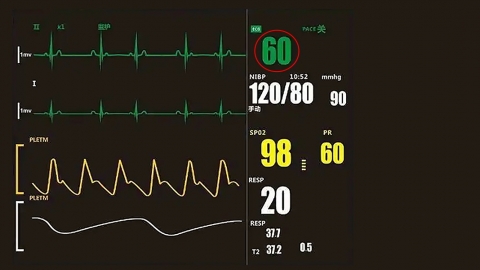What should I do about arrhythmia and how is it treated?
Arrhythmia may be caused by physiological factors such as emotional excitement, strenuous exercise, hyperthyroidism, myocarditis, hypertension, and others. It can usually be treated through relaxation, lifestyle adjustments, and medications taken as directed by a physician. If abnormalities occur, timely medical attention is recommended. Detailed explanations are as follows:

1. Emotional excitement: When emotionally excited, the sympathetic nervous system may become overactive, leading to abnormalities in the heart's electrical conduction system and resulting in arrhythmia. It is recommended to adjust one's mindset, maintain stable emotions, avoid excessive excitement and tension, and relax through deep breathing, meditation, or similar techniques.
2. Strenuous exercise: Engaging in intense physical activity within a short period may increase cardiac output, potentially causing abnormal cardiac electrophysiological activity and resulting in arrhythmia. This condition typically resolves spontaneously after rest.
3. Hyperthyroidism: Excessive secretion of thyroid hormones increases cardiac excitability, potentially leading to arrhythmia accompanied by palpitations, excessive sweating, weight loss, and other symptoms. It is recommended to follow medical advice in using medications such as methimazole tablets, propylthiouracil tablets, or carbimazole tablets to manage the condition.
4. Myocarditis: Myocarditis is an inflammatory disease of the myocardium, potentially caused by infections, autoimmune factors, and other triggers. It can damage myocardial cells and disrupt normal electrophysiological activity, leading to arrhythmia, fever, chest pain, shortness of breath, and other symptoms. As directed by a physician, medications such as enalapril maleate tablets, captopril tablets, or lisinopril capsules may be used to alleviate symptoms.
5. Hypertension: Hypertension is generally caused by genetic factors, mental stress, and other factors that can lead to sympathetic nervous system activation, affecting the heart's electrical conduction system and causing arrhythmia. Symptoms may include headache, dizziness, and palpitations. As directed by a physician, medications such as irbesartan capsules, metoprolol tartrate tablets, or verapamil hydrochloride tablets may be used to control the condition.
In daily life, maintaining a healthy lifestyle, improving dietary habits, engaging in appropriate physical exercise, enhancing physical fitness, and reducing susceptibility to disease are recommended. Additionally, regular electrocardiogram (ECG) examinations are advised.






